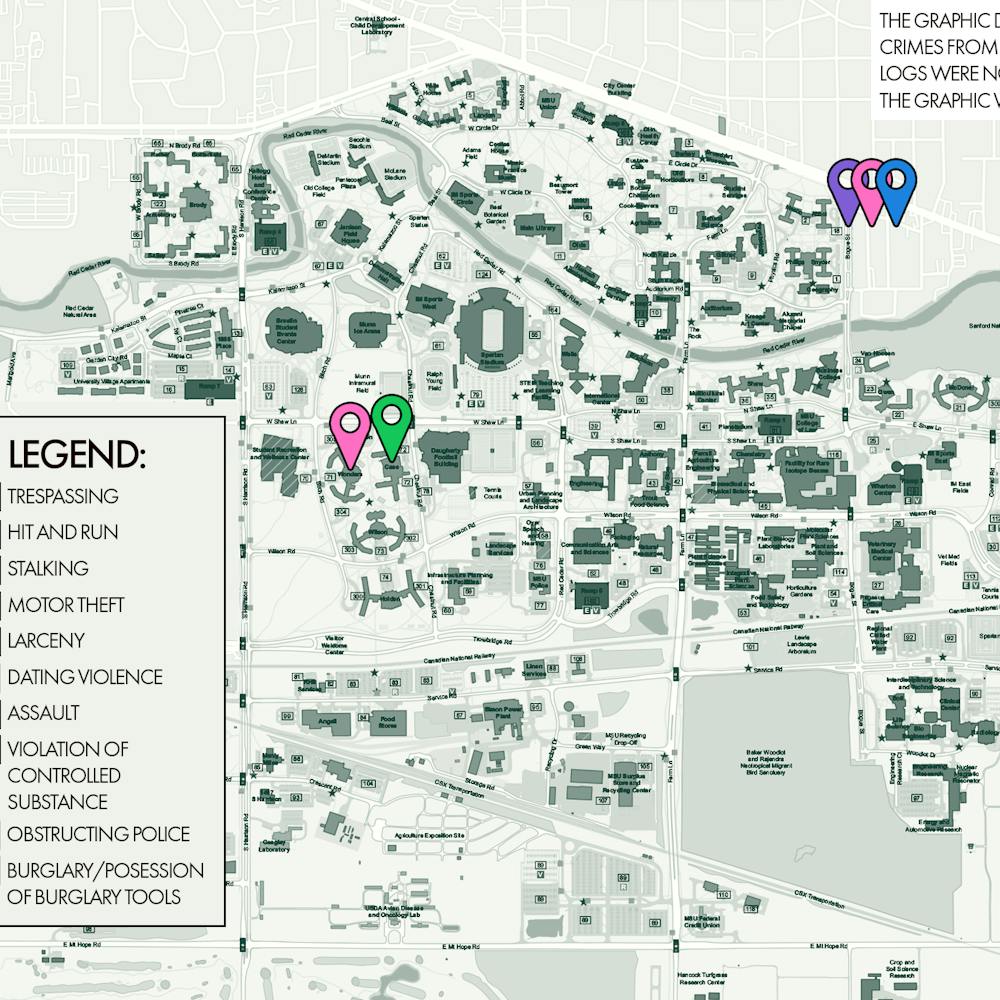“Common Struggles” were the theme of Monday night’s Xicano/Latino Power Rally held in the Culturas de las Razas Unidas room in the Wilson basement.
The event was part of MSU’s Xicano History Month celebration, which began Thursday.
CRU Co-President Misty Staunton noted the importance of recognizing the accomplishments of Chicanos and Latinos.
“This is a time to remember where we have been, where we’re at and where we are going,” the pre-med sophomore said.
More than 50 people listened to various leaders and representatives from student organizations address issues affecting the Chicano and Latino communities.
Adam Szlachetka, a member of Students for Economic Justice ,spoke on the plight of workers in sweatshops in Nicaragua and Mexico and encouraged students to get involved in activism.
“This touches your people,” the political economy senior said.
Members of Women’s Council and Sigma Lambda Beta Fraternity, Inc. also joined in, relating how the goals of each organization tie together for Chicanos and Latinos.
Mark Nazario, associate director for minority recruitment in the Office of Admissions, urged college students to reach out to children in inner city schools and stressed the importance of graduation from MSU.
“You’re our dreams,” he said. “You’re our hope, because we want you to make it to the next level. We want you to become the policy makers, the decision makers.”
Also present during the night were Rodney Patterson, director for the Office of Minority Student Affairs, and MSU Trustee Dorothy Gonzales.
The night’s keynote speaker was Baldemar Velasquez, president and founder of the Farm Labor Organizing Committee, which organizes farm workers to fight for human rights.
Velasquez said while there is a vast number of people coming from Mexico and Central America, the United States does not know how to handle the influx adequately.
He also said injustices that occur worldwide affect Americans and must be protested by the government.
“If we don’t expand to touch the world, the world expands and it touches us,” Velasquez said.
The stories of migrant workers were used to demonstrate Velasquez’s point. He said more than 3 million undocumented workers live in seven southern states, providing a large work force that can be easily exploited.
Velasquez encouraged activism and altruism from the rally’s audience members.
“It’s time we do things for others rather than ourselves,” he said.






